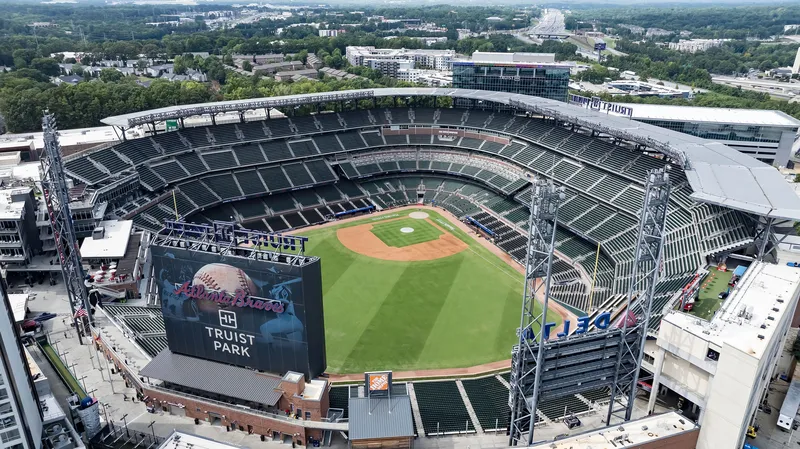A targeted roadside advertising project for digital signage using big data and deep learning just launched in Tokyo, Japan, by US smart data storage company Cloudian will focus on vehicle recognition and the ability to present relevant display ads by vehicle make and model.
Together with Dentsu, Smart Insight Corporation, and QCT (Quanta Cloud Technology) Japan, and with support from Intel Japan, the project will conduct, at its first stage, deep learning analysis – artificial intelligence (AI) for recog
June 22, 2016
Read time: 2 mins
A targeted roadside advertising project for digital signage using big data and deep learning just launched in Tokyo, Japan, by US smart data storage company Cloudian will focus on vehicle recognition and the ability to present relevant display ads by vehicle make and model.
Together with Dentsu, Smart Insight Corporation, and QCT (Quanta Cloud Technology) Japan, and with support from Intel Japan, the project will conduct, at its first stage, deep learning analysis – artificial intelligence (AI) for recognition with automatic feature extraction - of traffic patterns and volume and automatic vehicle recognition to enable targeted advertising with roadside, digital signage.
Led by Cloudian and utilising deep learning and its HyperStore’s leading smart data storage capabilities, the project aims to shift from proof of concept into practical use within the next six to 12 months, starting with practical application in Tokyo, and then potential deployment outside of Japan.
Cloudian began the project by providing the HyperStore software with training data that consisted of a large volume of vehicle information, images and video of car models, plus vehicle attribute inputs. This information was classified using HyperStore’s smart data storage functionality and will be tested to accurately identify vehicle models on Tokyo roadways.
As part of this experiment, HyperStore will also capture detailed, real-time data related to traffic volume at various times in the day, which can be made available to public institutions such as the Ministry of Land, Infrastructure and Tourism, local municipalities in Japan and to enterprises for retail location planning.
An aim of the project is to apply the automated vehicle recognition to generate targeted display advertisements based on vehicle model; for instance, an eco-friendly product could be displayed to drivers of hybrid/electric vehicles. Large LED billboards will be used in this portion of the experiment. The system neither captures nor stores identifiable vehicle information, including licence plates. While specific advertisers have not yet been identified, a recent press announcement in Japan has resulted in a number of inquiries to the participating companies.
The project also plans other demonstration experiments of new real-time advertising based on the analysis of not only vehicles but also human behaviors, such as attributes matching ads at shopping malls and tourists sites.
Together with Dentsu, Smart Insight Corporation, and QCT (Quanta Cloud Technology) Japan, and with support from Intel Japan, the project will conduct, at its first stage, deep learning analysis – artificial intelligence (AI) for recognition with automatic feature extraction - of traffic patterns and volume and automatic vehicle recognition to enable targeted advertising with roadside, digital signage.
Led by Cloudian and utilising deep learning and its HyperStore’s leading smart data storage capabilities, the project aims to shift from proof of concept into practical use within the next six to 12 months, starting with practical application in Tokyo, and then potential deployment outside of Japan.
Cloudian began the project by providing the HyperStore software with training data that consisted of a large volume of vehicle information, images and video of car models, plus vehicle attribute inputs. This information was classified using HyperStore’s smart data storage functionality and will be tested to accurately identify vehicle models on Tokyo roadways.
As part of this experiment, HyperStore will also capture detailed, real-time data related to traffic volume at various times in the day, which can be made available to public institutions such as the Ministry of Land, Infrastructure and Tourism, local municipalities in Japan and to enterprises for retail location planning.
An aim of the project is to apply the automated vehicle recognition to generate targeted display advertisements based on vehicle model; for instance, an eco-friendly product could be displayed to drivers of hybrid/electric vehicles. Large LED billboards will be used in this portion of the experiment. The system neither captures nor stores identifiable vehicle information, including licence plates. While specific advertisers have not yet been identified, a recent press announcement in Japan has resulted in a number of inquiries to the participating companies.
The project also plans other demonstration experiments of new real-time advertising based on the analysis of not only vehicles but also human behaviors, such as attributes matching ads at shopping malls and tourists sites.








